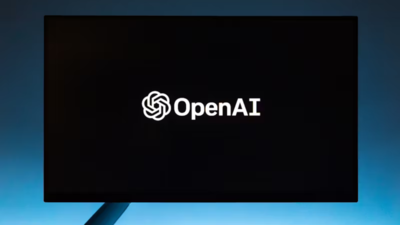ARTICLE AD BOX

Ever wondered what it’s like to work at the company behind ChatGPT? The reality is far from the tech paradise you might expect. Calvin French-Owen, who worked at OpenAI for 14 months as a technical staff member, contributed to some of the company’s most ambitious projects.
After leaving, he decided to share the unfiltered truth about life behind the scenes at one of the world’s most secretive tech companies. In a candid blog post published shortly after his departure, French-Owen revealed a much more intense and demanding culture than the innovative, collaborative workspace many imagine.
12-hour days are just the beginning
In his blog, French-Owen described his experience as both rewarding and exhausting. While he felt privileged to work on cutting-edge projects like Codex, an AI tool for coding, the workload was overwhelming.
“Codex was probably the hardest project I’ve worked on in nearly a decade,” he said, describing the project’s seven-week sprint as a whirlwind. Late nights, often working until 11 p.m. or midnight, followed by early mornings starting at 7 a.m.
, became routine. Add a newborn into the mix, and balancing work and family life became a significant challenge.French-Owen’s experience isn't unique. Reports of burnout at OpenAI are widespread, with employees regularly clocking 12-hour days.
The company's culture of constant high performance and tight deadlines often leads to exhaustion, with many pushing themselves to their limits.
No emails, just monitored chaos
Despite the grueling schedule, OpenAI offered a high degree of autonomy. The company values quick decision-making and agility, allowing teams to pursue new ideas without the bureaucratic slowdowns typical of larger organizations. However, this freedom came at a cost: secrecy.At OpenAI, communication was built around Slack, with email almost nonexistent. French-Owen received only about ten emails during his time there. “There is no email,” he explained, citing the preference for real-time communication in such a fast-moving environment.Secrecy also permeated other aspects of the company. Teams often didn’t know what other teams were working on, and financial matters were kept under tight wraps.
French-Owen noted that “everything is a rounding error compared to GPU costs,” underscoring the massive expenses involved in running AI projects.
Even employees don't know what's happening
Confidentiality at OpenAI reaches an extreme level, creating an atmosphere of isolation. Teams operate with little knowledge of what others are doing, even within the same company. This compartmentalization extends beyond project details to financial matters. French-Owen observed that the company’s exorbitant spending on computational power dwarfs most other expenses.While secrecy may be necessary for competitive reasons, it means employees often work in silos, disconnected from the broader vision and progress of the company.
Social media vibes on top
OpenAI’s culture places significant emphasis on its public image, particularly on social media. French-Owen noted that the company is deeply concerned with managing how it’s perceived online, despite being a leader in AI research. This focus on “vibes” or public perception is a curious feature for a company at the forefront of some of the world’s most complex technologies, yet it highlights the external pressures OpenAI faces as it pushes innovation behind closed doors.
Was it worth it?
So, was working at OpenAI worth it? French-Owen doesn’t give a simple answer. While he deeply respects the groundbreaking work the company is doing and admires his colleagues, he also acknowledges the toll that burnout, secrecy, and the unsustainable pace took on him. Ultimately, knowing when to step away was essential for preserving his well-being and moving on to a healthier professional future.His departure serves as a reminder that while the future of AI is shaped by talented individuals at companies like OpenAI, it often comes at a personal cost. Behind every breakthrough is a person working long hours and managing high stress to make it happen.



.png)
.png)
.png)
















 10 hours ago
5
10 hours ago
5









 English (US) ·
English (US) ·